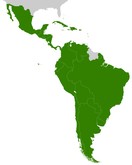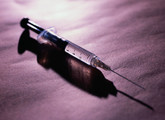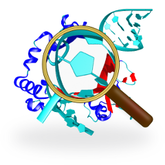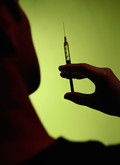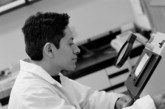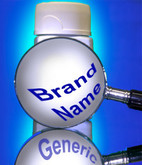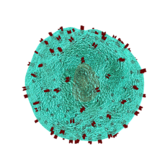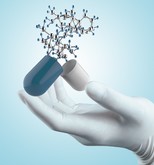Biosimilars/Research
Biosimilars in Southern European Hospital Markets: barriers and determinants of uptake
A recent publication by Barcina Lacosta et al. reflected on the need to understand market dynamics generated following biosimilars availability in Southern Europe, emphasizing that the competitive potential of biosimilars can be further deployed [1]. Considering the country-, setting-, and product-specific nature of biosimilar uptake patterns [2-5], the authors focused the analysis on hospital tumour necrosis factor alpha (TNF-α) inhibitor markets in Italy, Portugal and Spain [1].
Regulatory landscape for biosimilars in Latin America
The biosimilar regulatory situation in Latin America varies broadly among the different countries, even though Latin America is moving towards consolidating defined and standardised regulatory pathways for these products. This article gives a summary of the biosimilar regulatory status for the countries represented by members of the panel of experts of the American Health Foundation (AHF). The countries reviewed are Chile, Colombia, Ecuador, Guatemala and Peru [1].
Using infliximab economic evaluations in IBD to inform biosimilar access policies
According to a recent review, there has been limited economic evaluation of the varying prices of infliximab, despite its high cost. This limitation hinders the ability to understand the potential effects of introducing biosimilars. To ensure that patients with inflammatory bowel disease (IBD) continue to have access to their current medications, alternative pricing strategies and treatment access should be explored [1].
Biosimilars and other copies of biological products
The Commentary by Kurki P [1] is a response to the article of Klein et al. [2] that deals with copies of original biotherapeutics, biosimilars and non-biosimilars, marketed in 15 low- and middle-income countries (LMIC).
Bio-USER survey highlights the perception of retina specialists about biosimilars
The International Biosimilar Retina Study Group (Inter-BIOS Study Group) has recently published the results of the largest survey of biosimilar awareness amongst retina specialists practicing in the US and Europe [1]. The Survey was targeted at 200 retina specialists (100 from the US and 100 from Europe) and 112 retina specialists (55 from the US and 57 from Europe) responded. These results were presented at the 22nd Euretina Congress held in Hamburg, Germany [2], and also at the American Academy of Ophthalmology 2022 Annual Meeting held in Chicago, USA [3]. Following were the major findings of this survey:
Low biosimilar uptake in regions of low social and political trust
The adoption of biosimilars is lower in regions experiencing low social and governmental trust, finds a recent study that focused on uptake in provinces of Italy and Germany [1].
Study supports increased development of insulin biosimilars
Biosimilar insulins appear to be satisfactory in the treatment of both type 1 and type 2 diabetes and there is a strong case for increasing biosimilar insulin development, finds an editorial published in the Journal of Diabetes [1].
Malaysian hospital pharmacists’ perspective on and role in promoting biosimilars use
This survey study carried out by Mohd Sani N et al. aimed to evaluate Malaysian pharmacists’ perspectives of biosimilars and to determine factors associated with pharmacists successfully promoting their use.
Survey demonstrates US pharmacist biosimilar knowledge gaps
Previous studies of stakeholder perceptions have primarily focused on physicians. However, pharmacists are key stakeholders in the use and adoption of biosimilars. The study carried out by Stevenson et al. sought to gain insights from US pharmacists about their knowledge and approach to the use of biosimilars.
Best-value biological selection making: more to consider than only price
A recent paper by Barbier et al. described the criteria to be considered when selecting best-value biological, emphasizing that more factors should be taken into account than only the price, and the authors proposed an updated approach - a model, and guidelines to assist healthcare professionals to make transparent and evidence-based decisions [1].
A global overview of manufacturers of follow-on biologicals
Recently, the World Health Organization (WHO) has pointed out that the absence of appropriate regulatory frameworks for biosimilars may have led to the approval of follow-on biologicals that cannot be considered biosimilars according to current WHO biosimilar guidelines, which were coined ‘non-innovator biologicals’ by WHO. In order to investigate the existence of ‘non-innovator biologicals’ in global markets, more understanding of the structure of the market and the manufacturers that are active in this field is needed.
DARS: advancing biosimilar development in the US
This article reviews the recent engagement of the Division of Applied Regulatory Science (DARS) in several current initiatives on utilizing pharmacodynamic (PD) biomarkers to demonstrate biosimilarity, potentially streamlining or negate the need for comparative clinical studies.
Pegfilgrastim biosimilars in US supportive oncology
Humphreys et al. published a narrative review article concerning the administration options and the economic considerations of biosimilar pegfilgrastim in supportive cancer treatment in the US to maximize patient benefit[1].
Survey results of biosimilars use among Spanish physicians and pharmacists
Marín-Jiménez I et al. published in April 2021 a report based on a survey that was launched in Spain between June and November 2020 among hospital pharmacists and specialty physicians (dermatology, rheumatology, gastroenterology) to analyse knowledge, perceptions, attitude, barriers and facilitators of biosimilars uptake. Response rate was close to 100%.
US vs Germany and Switzerland: US biosimilars market lags with higher prices
In Germany and Switzerland, more biosimilars were marketed and at lower prices than in the US between 2011 and 2020, finds a JAMA Network Open article [1].
Drug survival of adalimumab biosimilars in psoriasis treatment in Spain
A review by López-Ferrer A et al. entitled ‘Drug survival of adalimumab biosimilars in real-world treatment of psoriasis: A Spanish multicenter study’ provided perspective of the factors associated with biosimilar adalimumab survival in Spain [1].
Investigating cell, tissue and gene therapy products and their regulation
Cell, tissue and gene therapy products or (CTGTPs) are often breakthrough therapies with immense potential in treating diseases with no cure or rare diseases with high treatment burdens. However, few of such therapies have been approved and some have been recalled due to safety issues. Now, a study published in GaBI Journal [1] has investigated these therapies and the manufacturing and regulatory challenges they pose.
AVT02 biosimilarity with Humira proved in chronic plaque psoriasis treatment
Results of clinical patient trials of Alvotech’s high concentration formulation biosimilar of adalimumab, AVT02, demonstrate comparable efficacy, safety and immunogenicity to the reference product Humira, according to a study published in Biodrugs [1].
Investigating biosimilar product drift and divergence
Following the establishment of biosimilarity, there are no regulations that require manufacturers to perform quality or clinical studies to compare biosimilar versus originator products post-approval. In an investigation published in GaBI Journal [1], Dr Pablo Matar examined the concept of biosimilar manufacturing ‘drift’ and product divergence [2].
Biosimilars, are they comparable to their reference counterparts?
Biologicals such as rituximab and trastuzumab have improved treatment outcomes for many cancers. However, due to their high economic burden, ‘highly similar’ products known as biosimilars have been developed and used. Yet, there is still concern surrounding comparability of efficacy and safety between the biosimilar and its reference biological, especially regarding patients switching from the reference to the biosimilar.

